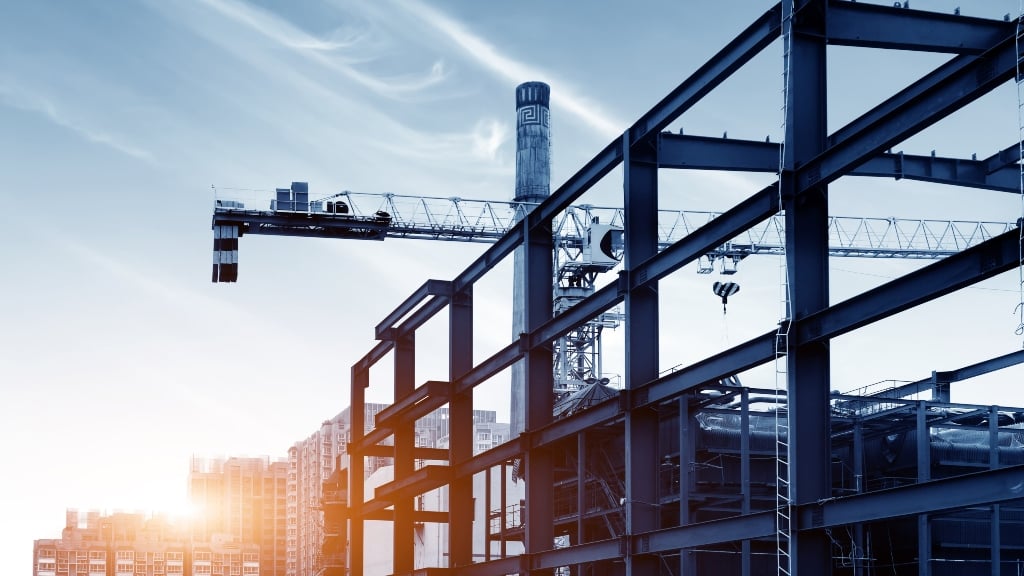
ComplianceWe offer comprehensive legal services for real estate developers and promoters, including land acquisition support, title due diligence, project approvals, RERA compliance, joint venture agreements, construction contracts, and litigation management. Our expert legal team ensures your projects are legally sound, efficiently structured, and compliant with all regulatory requirements, minimizing risks and enabling timely project execution.

We help developers strictly comply with RERA, municipal laws, and government regulations, avoiding penalties and ensuring smooth project execution.

Our services safeguard your financial interests by legally structuring transactions, securing approvals, and mitigating risks in property development ventures.

We provide end-to-end support in obtaining necessary approvals, licenses, and environmental clearances, ensuring your projects face zero legal hurdles.

From joint ventures to sale deeds, we draft watertight agreements that protect developers’ rights while minimizing disputes with stakeholders.

We ensure transparent and dispute-free land acquisition by verifying titles, negotiating agreements, and addressing legal complexities in ownership transfers.

Our team manages disputes with buyers, contractors, or authorities through strategic negotiation, arbitration, or litigation to protect developers’ reputation.

We secure developers’ assets by preventing fraudulent claims, forceful occupation, and encroachment, backed by strong legal documentation and vigilance.

We provide legal strategies for tax benefits, financial structuring, and compliance, ensuring maximum profitability and reduced developer liabilities.

By providing transparent legal documentation and compliance, we enhance buyer trust, helping developers sell faster and maintain strong market reputation.

Our legal services are designed to secure projects today while preparing developers for sustainable expansion and future real estate success.
Real estate developers and promoters frequently encounter complex legal issues that require strategic legal intervention. One of the most common problems is land title disputes, where unclear ownership or encumbrances can stall or nullify projects. Lawyers conduct detailed title due diligence and resolve such issues to ensure marketable ownership. Delays in building plan approvals, environmental clearances, and land-use conversions often disrupt project timelines— lawyers help expedite these approvals and handle appeals if permissions are unjustly denied. Developers also face challenges in joint development agreements (JDA) with landowners, where disagreements on profit-sharing or control may lead to legal disputes. Lawyers ensure clear drafting and dispute resolution mechanisms in JDAs. Another major area of concern is RERA compliance, where non-registration or delays in possession can lead to heavy penalties and buyer complaints. Lawyers ensure developers meet all RERA requirements and represent them in disputes. Issues with contractors, vendors, or suppliers, such as non-performance or payment delays, also arise frequently—lawyers draft protective contracts and handle litigation or arbitration. Additionally, developers may face consumer complaints, encroachment disputes, tax liabilities, or builder insolvency proceedings under IBC. Legal professionals manage these risks, represent developers before authorities like RERA, NCLT, and consumer forums, and structure transactions to avoid litigation. With legal guidance, developers can focus on project execution while ensuring compliance, avoiding penalties, and maintaining investor and buyer trust.
Lawyers conduct exhaustive title searches and resolve title defects, inheritance claims, or overlapping ownerships. This ensures developers acquire clear, marketable land and prevents future litigation that could halt or invalidate the project.
Legal professionals help navigate regulatory bottlenecks by filing RTIs, legal notices, or writ petitions to compel authorities for timely clearances such as building plans, environmental permissions, and fire safety NOCs.
Lawyers assist in RERA project registration, drafting disclosure documents, and ensuring compliance with delivery timelines. They also represent developers in RERA proceedings against buyer complaints or penalties for non-compliance.
Disagreements with landowners over revenue share, construction rights, or control can delay projects. Lawyers draft watertight JDAs and resolve such disputes through negotiation, arbitration, or civil suits..
Lawyers draft and enforce contracts with contractors, architects, and suppliers. They manage disputes over payment delays, poor construction, or project abandonment through legal notices, arbitration, or litigation.
Buyers often approach consumer courts for delays or defects. Lawyers defend developers, present evidence of force majeure or progress, and negotiate settlements to reduce reputational and financial damage.
Developers often face penalties for using agricultural or industrial land for residential projects. Lawyers obtain land-use conversion approvals and defend against illegal construction or demolition notices.
Lawyers assist in managing tax compliance, resolving disputes over GST on under-construction properties, stamp duty liabilities, and represent developers in proceedings before tax tribunals or appellate authorities.
Lawyers help developers deal with illegal occupants, boundary overlaps, or third-party claims by filing injunction suits, eviction petitions, and liaising with local authorities for peaceful possession.
Conflicts may arise with financial partners over equity share, ROI, or mismanagement. Lawyers draft investor agreements, resolve disputes through arbitration, and ensure enforceable financial terms to maintain investor confidence.
Lawyers ensure adherence to labour laws, draft worker contracts, and represent developers in case of labour disputes, strikes, or inspections from labour departments to avoid project delays and penalties..
Disputes over project names, logos, or marketing content can arise. Lawyers help secure trademarks, handle copyright matters, and act against infringers to protect brand identity.
In cases of financial crisis, lawyers help initiate or defend against insolvency proceedings under the IBC, represent before NCLT, and negotiate restructuring with creditors to protect ongoing projects.
Unsatisfied buyers or investors may file FIRs alleging cheating or fraud. Lawyers defend developers, quash false FIRs, and ensure proper representation before police or magistrate courts to protect liberty and reputation.

We assist real estate developers in legally acquiring land by conducting thorough due diligence on ownership titles, encumbrances, land use restrictions, conversion status, and litigation history. Our team verifies all legal documentation and ensures regulatory compliance before purchase. We help prevent future disputes by identifying legal risks early. With our legal expertise, developers can confidently acquire land that is legally clear, marketable, and suitable for development under local laws and zoning regulations.





Our legal experts draft, review, and vet all real estate-related documents, including Joint Development Agreements, Sale Deeds, MOUs, Collaboration Agreements, and Lease Deeds. We ensure that every contract protects the developer’s interest, is enforceable under Indian law, and compliant with RERA and local regulations. Accurate documentation not only minimizes legal risks but also enhances investor confidence and ensures smooth project execution, sales, and possession delivery to buyers.






We guide builders and promoters through the complex web of regulatory requirements, ensuring compliance with state laws and central regulations. Our services include RERA registration, quarterly updates, project disclosures, drafting buyer agreements, and handling complaints. We represent clients before RERA authorities when disputes arise. With our ongoing advisory and audit approach, developers avoid penalties and maintain trust with customers, investors, and government bodies by staying fully compliant throughout the project lifecycle.





We help developers secure all necessary legal permissions and clearances for construction projects, including building plan approvals, environmental NOCs, fire safety clearance, and completion/occupancy certificates. Our team ensures documentation is error-free and follows municipal and zoning laws. We liaise with government authorities and resolve legal bottlenecks that delay project initiation or handover. This ensures timely project launch and completion without legal hurdles that could affect profitability or reputation.





Our litigation team represents developers in property-related legal disputes before RERA, consumer courts, NCLT, High Courts, and civil courts. We handle buyer disputes, contractor claims, landowner disagreements, and regulatory compliance matters. We offer both courtroom representation and alternative dispute resolution (ADR) like arbitration and mediation. Our goal is to protect project timelines and reputation by resolving issues promptly with minimum disruption to your construction and sales activities.






We help builders meet all statutory property-related tax obligations including GST compliance, TDS on property transactions, property tax, and stamp duty calculations. Our team ensures that all filings are accurate and submitted on time, avoiding fines or legal notices. We also advise on legal structuring of projects to maximize tax efficiency. With us, developers gain financial clarity, legal security, and peace of mind on all tax-related matters.






We provide end-to-end legal support for raising funds through private equity, joint ventures, NBFC financing, or bank loans. Our services include drafting term sheets, investor agreements, mortgage deeds, and conducting lender due diligence. We structure deals to balance promoter control with investor interests. Our legal insight ensures your funding is secure, compliant, and aligned with long-term project goals—whether for land purchase, construction, or expansion.

We help developers legally form housing societies and apartment owners’ associations under relevant state acts like the West Bengal Apartment Ownership Act or Cooperative Societies Act. Our services include drafting by-laws, filing registration documents, and conducting handover from builder to residents. A smooth transition builds credibility and reduces post-possession disputes. We also guide developers in managing common areas and maintenance charges legally until society formation is completed.




We prepare buyer-friendly, RERA-compliant sale agreements with defined payment plans, penalty clauses, cancellation, and refund provisions.

We draft legally sound allotment letters and ensure demand notices match construction progress as per buyer-builder agreement.

We manage registration procedures at the sub-registrar’s office, ensuring smooth and timely execution of the sale deed.

We provide professional legal responses to buyer concerns regarding agreements, legal status, payment structure, and other property-related documents.

We draft possession letters, handover certificates, and ensure compliance with conditions like OC/CC before possession.

We handle the legal process when buyers cancel bookings or invoke buy-back clauses, ensuring fair outcomes and legal compliance.

We handle issuance of notices to defaulting buyers and ensure the promoter’s actions comply with RERA and contract laws.

If a buyer initiates legal proceedings, we defend the developer’s interest before RERA or consumer courts professionally and lawfully

Providing project approvals and required documents to help buyers secure home loans easily.
We assist in choosing and registering the appropriate business structure—Private Limited Company, LLP, Partnership Firm, or Proprietorship—based on your goals, tax implications, and compliance requirements.

Our lawyers conduct in-depth title verification, land-use compliance checks, and documentation audits to help you acquire land legally and avoid future litigation.

We prepare watertight Joint Development Agreements with landowners, ensuring clear profit sharing, development rights, timelines, and dispute resolution clauses.

We handle project registration with RERA, draft mandatory disclosures, and set up legal compliance systems to protect your business from penalties or buyer litigation.

We draft and vet contracts with architects, contractors, suppliers, and consultants to minimize disputes and ensure project continuity.

We facilitate PAN, GST, EPF, ESIC, and other regulatory registrations to make your business fully compliant with tax and labour laws.

We create standardised legal documents like allotment letters, sale agreements, and tripartite bank agreements to streamline buyer interactions.

Our team helps protect your project and company branding by filing trademarks and taking legal action against misuse or duplication.


We understand that delays cost money. That’s why we deliver clear, actionable legal solutions that help you close deals faster and stay ahead of compliance deadlines.

We offer legally vetted document sets, buyer interaction templates, and structured legal systems designed specifically for real estate businesses—making your operations smooth and legally secure.

We know time kills deals. That’s why we commit to deadline-driven legal delivery—without sacrificing legal thoroughness or client clarity.

We keep your clients informed, answer their doubts, and simplify legal jargon—ensuring they never drop out due to fear or confusion.

Be it at the registry office, during possession, or while signing—our team is present when it matters most, both in person and online.

We don’t panic over legal issues—we strategize around them. Our risk mitigation mindset helps save deals that others may abandon.
Our proactive legal drafting, documentation, and buyer coordination ensure faster unit registration, quicker possession, and reduced delays in project milestones.
From land acquisition to RERA compliance, and from drafting builder-buyer agreements to handling consumer disputes—we handle everything under one roof.
We draft legally strong yet balanced agreements that reduce future litigation, delays, or buyer refund liabilities—protecting your interests while staying RERA-compliant.
Unlike generalist law firms, we specialize in real estate law, zoning rules, building approvals, and project structuring, giving you sharp, industry-specific legal advice.n
No surprise fees. We offer affordable monthly retainers and package-based pricing for documentation, RERA filings, dispute resolution, and ongoing compliance.
Our legal team has successfully represented developers in complex builder-buyer disputes, insolvency matters, and compliance violations—delivering real results.
We work like an extension of your office. Our dedicated legal team communicates with your project managers, accounts team, and buyers for seamless legal handling.
We serve Bengali, Hindi, and English-speaking clients—bridging communication gaps with buyers, local authorities, and landowners alike..








Register your business as an LLP, Private Ltd. Co., or partnership and obtain PAN, TAN, GST, and applicable licenses from RERA, local municipalities, and development authorities.
Yes, if your project exceeds 500 sq.m. or includes more than 8 apartments, RERA registration is mandatory under the Real Estate (Regulation and Development) Act, 2016.
RERA registration usually takes 30–60 days, subject to submission of all correct documents and plans.
Yes, land use approvals, zoning clearances, and trade licenses differ for residential and commercial developments.
RERA registration, construction license, environmental clearance, municipal approvals, and land-use conversion certificates.
Lawyers ensure proper business structure, draft partnership agreements, apply for licenses, and handle RERA compliance.
Foreign direct investment (FDI) is allowed in certain sectors of real estate under automatic routes, but legal scrutiny is essential to remain compliant.
Yes, for large residential/commercial projects. Lawyers help with EIA submissions and clearances from the State Environment Impact Assessment Authority.
A commencement certificate is issued by the local municipal corporation allowing construction to begin legally after obtaining all preliminary approvals.
Not always. It depends on whether new units are being sold or the renovation qualifies as a fresh development under RERA.
It ensures the seller has clear, marketable, and litigation-free ownership—preventing future legal disputes.
Lawyers examine chain of title, encumbrances, mutation records, tax dues, and registered documents from sub-registrar offices.
Only if the POA is valid, registered, and specifically authorizes the sale of the property.
All co-owners must legally consent to the transaction. Lawyers can draft joint development agreements or sale deeds accordingly.
Sale deeds, RTCs, khata extracts, survey plans, tax receipts, mutation entries, and ECs (Encumbrance Certificates).
Legal experts check civil court records, pending suits, and register certified reports from jurisdictional authorities.
They establish legal ownership in municipal records—crucial for approvals, loans, and project execution.
Only after conversion. Lawyers help with land-use conversion from agricultural to non-agricultural (NA) purpose.
It may take 7–14 days, depending on location and record availability.
Yes. Without title verification, a developer can face lawsuits, demolition orders, or cancellation of approvals.
You need land-use clearance, building plan approval, commencement certificate, environmental clearance (if applicable), and RERA registration.
No. Marketing, selling, or booking units before approvals and RERA registration is a punishable offence under RERA.
It’s the municipal authority’s approved construction plan. Building without it can lead to demolition and penalties.
Yes. Projects above a certain height or occupancy type must have Fire Safety NOC before commencement.
For projects in states where ULC laws still apply, clearance is required if landholding exceeds prescribed limits.
Yes, they must be obtained from the respective municipal or development authority departments.
File a revised application with justification. Approval is required before executing any changes on-site.
Yes, developers must register under GST and comply with tax invoicing and returns if they cross the threshold limit.
Legal action, demolition, consumer cases, RERA penalties, and criminal charges under local building laws.
Yes, experienced legal teams liaise with authorities, prepare compliance documentation, and handle procedural formalities.
Yes. Laws like EPF, ESI, Contract Labour Act, and Building & Construction Workers Act apply.
Developers must pay 1% of the project cost as labour welfare cess to the appropriate board.
Register under Contract Labour (Regulation & Abolition) Act if hiring more than 20 contract labourers.
Yes. Developers must provide accident insurance and ESI coverage for construction workers.
The developer or principal employer is legally responsible under the Workmen’s Compensation Act and BOCW Act.
Only with proper work visas and approvals from the Ministry of Labour & Employment.
Yes. Regular safety checks and compliance with National Building Code guidelines are legally expected.
To monitor compliance with labour laws, safety practices, and maintain health and hygiene on-site.
Attendance registers, wage slips, PF/ESI challans, contractor agreements, and labour licenses.
Yes. Penalties include fines, imprisonment, project stoppage, and blacklisting from government contracts.
A legal contract between landowners and developers outlining development rights, profit-sharing, and responsibilities.
Yes. JDAs must be registered and attract stamp duty as per state-specific rules.
Scope of development, consideration, timelines, termination, indemnity, profit-sharing ratio, and dispute resolution.
Usually the developer, but it should be clearly defined in the agreement.
Only if allowed by the JDA. Otherwise, premature transfers can result in legal disputes.
Through clearly defined roles, exit clauses, legal indemnities, and performance-based benchmarks.
The developer may initiate arbitration or civil proceedings based on breach of contract.
Yes, but all must be party to the agreement and consent individually.
Yes. Landowners typically execute a registered POA in favour of the developer for project execution.
Drafting, negotiation, due diligence, registration, risk assessment, and litigation support.
Land conversion refers to changing agricultural land to non-agricultural use (residential/commercial). It’s mandatory before construction begins. Developers must apply to the local land revenue department for conversion certificates.
Developers must apply through the State Environmental Impact Assessment Authority (SEIAA) with detailed project reports. Clearance is mandatory for large-scale projects as per the EIA Notification, 2006.
Yes, fire safety NOC is required for buildings above a certain height. Developers must submit plans to the Fire Department and comply with the National Building Code.
It is a legal approval from the local municipal authority that allows developers to begin construction. Building without a CC is illegal and can lead to demolition.
An OC certifies that the building complies with all construction and safety norms and is fit for occupancy. It is issued by the local development authority after project completion.
No. As per RERA, advertising or marketing without registration is illegal and can result in fines up to 10% of project cost and imprisonment.
Essential NOCs include:
Yes. Lawyers examine title, encumbrances, revenue records, and past litigations to ensure the land is legally transferable and risk-free for development.
Project approval time varies state-wise but may take 6–12 months. Legal teams can expedite the process by preparing complete, compliant applications and following up with authorities.
In some cases, yes. Legal teams can help apply for compounding or regularization schemes offered by municipal bodies if the project meets basic safety and zoning criteria.
It can result in project halts, court cases, demolition orders, and investor lawsuits. Title verification by lawyers ensures marketable ownership and smooth project execution.
Sometimes. Developers can apply for land-use conversion or regularization schemes. However, it depends on the state’s Master Plan and zoning rules. A lawyer’s review is crucial.
Only after registering the project with RERA and obtaining approvals like sanctioned layout, building plan, and Commencement Certificate. Pre-approval sales are illegal.
A JDA is signed between landowners and developers. It outlines revenue sharing, construction responsibilities, and timelines. A lawyer ensures it protects both parties.
Important clauses include payment schedule, possession timeline, delay penalty, defect liability, cancellation, refund terms, and RERA obligations.
By drafting transparent agreements, vetting promotional material for compliance, and ensuring RERA registration, lawyers help avoid misrepresentation and contractual breaches.
It is used when a developer (manager) constructs on behalf of a landowner or investor. Legal vetting ensures clarity in scope, fees, and authority delegation.
Yes. A well-drafted Force Majeure clause helps protect developers from liabilities due to unforeseen delays like floods, pandemics, or government bans.
Essential clauses cover project timeline, payment milestones, quality standards, indemnity, insurance, and arbitration for disputes.
They draft balanced agreements ensuring timely delivery, material quality, liability for defects, and penalties for delays to protect the developer’s interests.
Legal teams reduce litigation by maintaining compliance, issuing proper notices, drafting clear contracts, and mediating early disagreements.
Yes. A legally vetted Memorandum of Understanding secures developer-investor roles, return expectations, and exit clauses—preventing financial disputes.
Indemnity clauses protect developers from losses due to third-party claims or contractor negligence. Lawyers ensure they’re enforceable and project-specific.
Absolutely. Developers using tech platforms must legally vet online payment terms, cancellation clauses, and digital contract validity for enforceability.
They structure shareholder agreements, resolve deadlocks, and use mediation, arbitration, or NCLT proceedings when business disputes escalate.
Yes, but with restrictions. FDI is allowed in township and development projects, subject to minimum capital and exit conditions under FEMA & RBI guidelines.
Prior approval from RBI may be required along with registration with the Department for Promotion of Industry and Internal Trade (DPIIT).
Yes, NRIs can co-invest through automatic route in most construction development sectors, except for agricultural or farm land.
KHA Advocates structures Joint Ventures with clear equity sharing, exit rights, FDI compliance, tax structuring, and government approvals.
Risks include FEMA violations, delays in repatriation, compliance failures, and contract enforcement issues. Legal due diligence is a must before onboarding any foreign partner.
Common disputes include buyer complaints, contractor claims, landowner disagreements in JDA, regulatory delays, RERA non-compliance, and labour litigation.
Use strong agreements, clear timelines, regular updates, RERA-compliant clauses, and proactive legal communication to reduce risk of litigation.
Yes. Professional legal representation ensures your interests are protected, especially in refund, delay, or compensation matters before RERA authorities.
If a project company becomes insolvent, creditors may approach NCLT. KHA Advocates represents developers in NCLT to protect against forced insolvency.
Yes. Legal action can be initiated under the agreement, RERA, or civil remedies for breach of contract, non-payment, or misconduct.
